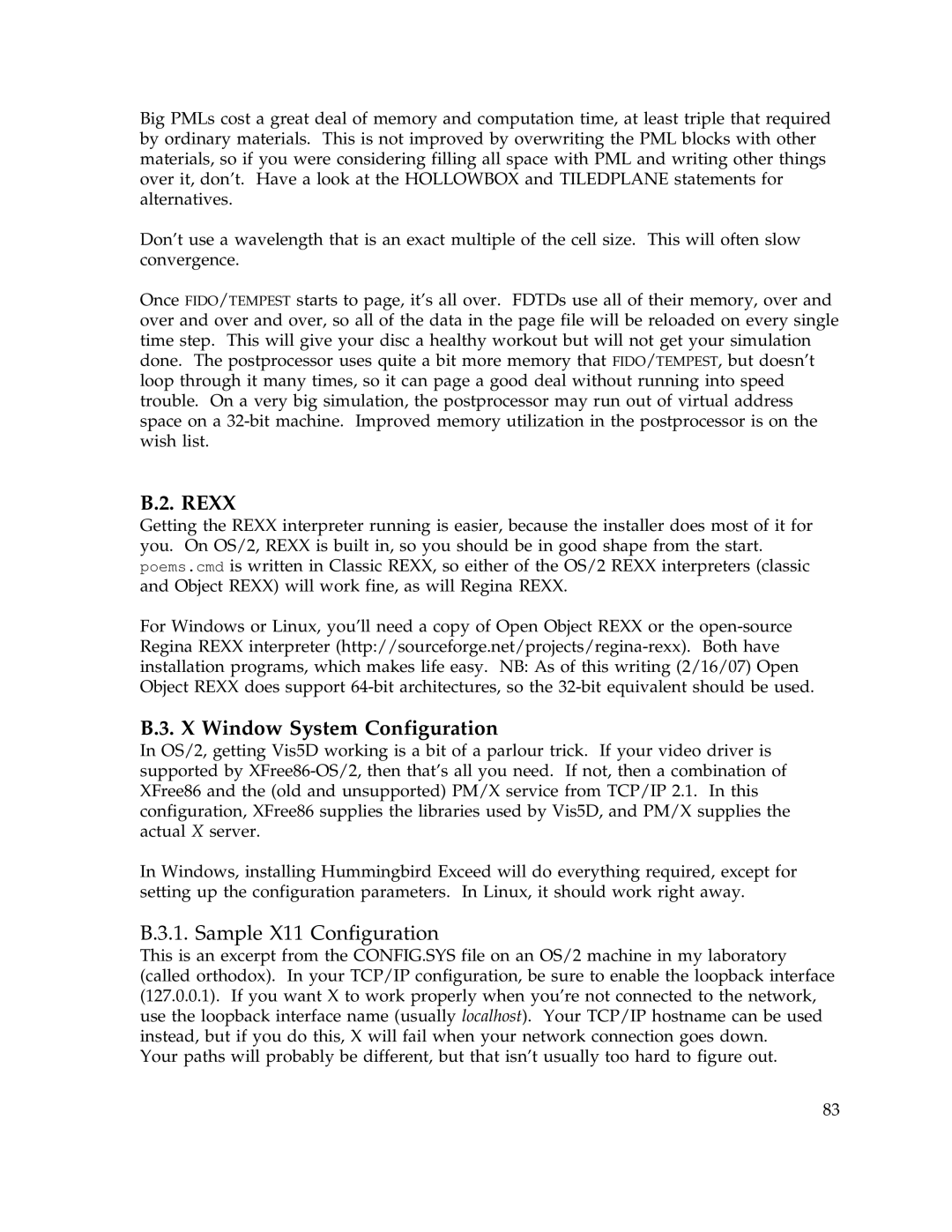Big PMLs cost a great deal of memory and computation time, at least triple that required by ordinary materials. This is not improved by overwriting the PML blocks with other materials, so if you were considering filling all space with PML and writing other things over it, don’t. Have a look at the HOLLOWBOX and TILEDPLANE statements for alternatives.
Don’t use a wavelength that is an exact multiple of the cell size. This will often slow convergence.
Once FIDO/TEMPEST starts to page, it’s all over. FDTDs use all of their memory, over and over and over and over, so all of the data in the page file will be reloaded on every single time step. This will give your disc a healthy workout but will not get your simulation done. The postprocessor uses quite a bit more memory that FIDO/TEMPEST, but doesn’t loop through it many times, so it can page a good deal without running into speed trouble. On a very big simulation, the postprocessor may run out of virtual address space on a
B.2. REXX
Getting the REXX interpreter running is easier, because the installer does most of it for you. On OS/2, REXX is built in, so you should be in good shape from the start. poems.cmd is written in Classic REXX, so either of the OS/2 REXX interpreters (classic and Object REXX) will work fine, as will Regina REXX.
For Windows or Linux, you’ll need a copy of Open Object REXX or the
B.3. X Window System Configuration
In OS/2, getting Vis5D working is a bit of a parlour trick. If your video driver is supported by
In Windows, installing Hummingbird Exceed will do everything required, except for setting up the configuration parameters. In Linux, it should work right away.
B.3.1. Sample X11 Configuration
This is an excerpt from the CONFIG.SYS file on an OS/2 machine in my laboratory (called orthodox). In your TCP/IP configuration, be sure to enable the loopback interface (127.0.0.1). If you want X to work properly when you’re not connected to the network, use the loopback interface name (usually localhost). Your TCP/IP hostname can be used instead, but if you do this, X will fail when your network connection goes down.
Your paths will probably be different, but that isn’t usually too hard to figure out.
83
